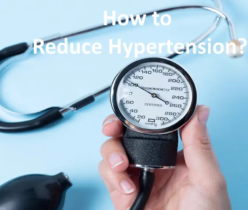Hypertension, commonly known as high blood pressure, is a medical condition where the force of blood against the artery walls is consistently too high. This condition makes the heart work harder to pump blood throughout the body, which can lead to serious health complications if left untreated. Often referred to as the “silent killer,” hypertension typically shows no symptoms, making regular blood pressure checks crucial for early detection and management.
Key Takeaways
- Hypertension is a condition where the blood pressure in the arteries is persistently elevated, requiring the heart to work harder to circulate blood.
- Often called the “silent killer,” hypertension usually shows no symptoms, making regular monitoring essential.
- Risk factors for hypertension include genetics, age, lifestyle choices, and dietary habits.
- Untreated hypertension can lead to severe complications such as heart disease, stroke, kidney damage, and brain health issues.
- Management of hypertension involves lifestyle changes, medication, and regular monitoring to prevent complications.
Understanding Hypertension
Definition and Explanation
Hypertension, also known as high or raised blood pressure, is a condition in which the blood vessels have persistently raised pressure. Blood is carried from the heart to all parts of the body in the vessels. Each time the heart beats, it pumps blood into the vessels. Blood pressure is created by the force of blood pushing against the walls of blood vessels (arteries) as it is pumped by the heart. The higher the pressure, the harder the heart has to pump.
How Blood Pressure is Measured
Hypertension is diagnosed if, when it is measured on two different days, the systolic blood pressure readings on both days are≥140 mmHg and/or the diastolic blood pressure readings on both days are≥90 mmHg. Blood pressure is typically measured using a cuff placed around the arm, which inflates and then deflates to measure the pressure.
Why Hypertension is Called the Silent Killer
Hypertension is often referred to as the silent killer because many people with high blood pressure may not feel symptoms. The only way to know is to get your blood pressure checked. This condition can lead to serious health issues such as heart, brain, and kidney diseases if left untreated. It is a major cause of premature death worldwide, affecting over a billion people.
Regular monitoring and early detection are crucial in managing hypertension effectively.
Risk Factors for Hypertension
Genetic Predisposition
A significant risk factor for hypertension is a family history of the condition. If you have a parent or sibling with high blood pressure, your risk increases. This genetic predisposition means that some individuals are more likely to develop hypertension due to their hereditary background.
Lifestyle and Dietary Influences
Unhealthy lifestyle choices can significantly contribute to the development of hypertension. Factors such as obesity, physical inactivity, and a diet high in sodium and unhealthy fats are major contributors. Additionally, the consumption of tobacco and excessive alcohol can elevate blood pressure levels.
Age and Demographic Factors
Age is another critical factor; individuals over the age of 55 are at a higher risk. Certain demographic factors, such as being Black, also increase the likelihood of developing hypertension. Co-existing medical conditions like chronic kidney disease and metabolic syndrome further elevate this risk.
Understanding your risk factors for high blood pressure includes looking at family history, age, diet, and poor nutrition like a high-sodium diet, obesity, and lack of exercise.
Symptoms and Diagnosis
For most people, high blood pressure has no signs or symptoms. That is why it’s often called the “silent killer.” However, some individuals may experience headaches, shortness of breath, or nosebleeds, but these symptoms are not specific and usually don’t occur until hypertension has reached a severe or life-threatening stage.
Hypertension is diagnosed through blood pressure measurements. A high blood pressure diagnosis means your top number (systolic) is at least 130 and/or your bottom number (diastolic) is at least 80. Here is a simple table to understand the ranges:
| Category | Systolic (mm Hg) | Diastolic (mm Hg) |
|---|---|---|
| Normal | Less than 120 | Less than 80 |
| Elevated | 120-129 | Less than 80 |
| Hypertension Stage 1 | 130-139 | 80-89 |
| Hypertension Stage 2 | 140 or higher | 90 or higher |
| Hypertensive Crisis | Higher than 180 | Higher than 120 |
It’s crucial to seek medical help if you experience severe headaches, chest pain, difficulty breathing, or any other unusual symptoms. Regular check-ups are essential, especially if you have risk factors like a family history of hypertension, obesity, or a sedentary lifestyle.
Early diagnosis and management can prevent complications and improve quality of life.
Complications of Untreated Hypertension
 Untreated hypertension may lead to serious health problems including:
Untreated hypertension may lead to serious health problems including:
Cardiovascular Issues
Uncontrolled high blood pressure can lead to heart attack, heart disease, congestive heart failure, stroke, and other issues. Excessive pressure can harden arteries, decreasing the flow of blood and oxygen to the heart. This elevated pressure and reduced blood flow can cause significant damage to the cardiovascular system.
Kidney Damage
Hypertension can cause kidney damage by affecting the blood vessels in the kidneys. Over time, this can lead to kidney disease and eventually kidney failure. The kidneys’ ability to filter waste from the blood is compromised, leading to a buildup of harmful substances in the body.
Impact on Brain Health
High blood pressure can also cause strokes by blocking or bursting arteries that supply blood and oxygen to the brain. This can result in severe brain damage or even death. Additionally, hypertension is linked to vascular dementia, a condition caused by reduced blood flow to the brain, leading to cognitive decline.
It’s crucial to manage and treat high blood pressure to avoid these severe health complications. Regular monitoring and lifestyle changes can make a significant difference in maintaining healthy blood pressure levels.
Management and Treatment Options

Lifestyle Modifications
Managing hypertension often begins with lifestyle changes. Reducing and managing mental stress is crucial. Regular physical activity, such as walking or participating in Online Fitness Classes, can significantly lower blood pressure levels. Additionally, cessation of tobacco use and the harmful use of alcohol, as well as improvements in diet, can help reduce symptoms and risk factors from hypertension.
Medications
For many individuals, lifestyle changes alone may not be sufficient. Various medications are available to help control high blood pressure. The choice of drug therapy can vary based on individual health profiles. It’s essential to consult with healthcare professionals to determine the most effective treatment plan.
Monitoring and Follow-Up
Regularly checking blood pressure at home and consulting with health professionals is vital for managing hypertension. Monitoring your blood pressure helps adjust treatment plans as needed and ensures that the condition is controlled.
Consistent follow-up with healthcare providers is essential to effectively manage and treat hypertension.
Preventive Measures
 Adopting a balanced diet is crucial in preventing hypertension. Focus on consuming various fruits, vegetables, whole grains, and lean proteins. Reducing salt intake can significantly lower blood pressure levels. Incorporating potassium-rich foods like bananas and spinach can also help manage blood pressure.
Adopting a balanced diet is crucial in preventing hypertension. Focus on consuming various fruits, vegetables, whole grains, and lean proteins. Reducing salt intake can significantly lower blood pressure levels. Incorporating potassium-rich foods like bananas and spinach can also help manage blood pressure.
Engaging in regular exercise is one of the most effective ways to prevent high blood pressure. Aim for at least 150 minutes of moderate-intensity aerobic activity or 75 minutes of vigorous-intensity activity each week. Activities such as walking, cycling, and swimming are excellent choices. Additionally, incorporating strength training exercises at least two days a week can provide further benefits.
Smoking and excessive alcohol consumption are significant risk factors for hypertension. Quitting smoking can improve overall cardiovascular health and reduce blood pressure. Limiting alcohol intake to moderate levels—up to one drink per day for women and up to two drinks per day for men—can also help maintain healthy blood pressure levels.
Managing stress is another important aspect of preventing hypertension. Stress management techniques include exercising, listening to music, focusing on something calm or peaceful, and meditating.
Global Impact of Hypertension

Prevalence in Different Regions
It is a serious medical condition and can increase the risk of heart, brain, kidney, and other diseases. It is a major cause of premature death worldwide, with upwards of 1 in 4 men and 1 in 5 women – over a billion people – having the condition. The burden of hypertension is felt disproportionately in low- and middle-income countries, where two-thirds of cases are found, largely due to increased risk factors in those populations in recent decades.
Economic Burden
Hypertension not only affects health but also has significant economic implications. The cost of managing hypertension and its complications can be substantial, impacting both healthcare systems and individual finances. The economic burden is particularly heavy in low- and middle-income countries, where resources are often limited.
Public Health Initiatives
One of the global targets for non-communicable diseases is reducing hypertension prevalence by 33% between 2010 and 2030. Various public health initiatives are being implemented worldwide to achieve this goal, including awareness campaigns, screening programs, and policy changes to promote healthier lifestyles.
The World Health Organization (WHO) supports countries to reduce hypertension as a public health problem.
| Statistic | Value |
|---|---|
| Adults with Hypertension (2015) | 1.13 billion |
| Adults with Hypertension (1975) | 594 million |
| Adults Unaware of Condition | 46% |
| Adults Diagnosed and Treated | 42% |
| Adults with Conditions under Control | 21% |
Conclusion
Hypertension, or high blood pressure, is a prevalent yet often silent condition that poses significant health risks if left unmanaged. Despite its lack of symptoms, it can lead to severe complications such as heart attack, stroke, and kidney disease. Understanding the risk factors, such as age, genetics, diet, and lifestyle choices, is crucial for prevention and management. Regular monitoring and early intervention are key to mitigating the adverse effects of hypertension. By adopting healthier habits and seeking medical advice when necessary, individuals can effectively manage their blood pressure and reduce the risk of life-threatening conditions.
Frequently Asked Questions
What is hypertension?
Hypertension, also known as high or raised blood pressure, is a condition in which the blood vessels have persistently raised pressure. This means the heart has to work harder to pump blood through the vessels.
How is hypertension diagnosed?
It is diagnosed if, on two different days, the systolic blood pressure readings are ≥140 mmHg and/or the diastolic blood pressure readings are ≥90 mmHg.
What are the common risk factors for hypertension?
Common risk factors include older age, genetics, being overweight or obese, lack of physical activity, a high-salt diet, and excessive alcohol consumption.
Why is hypertension called the ‘silent killer’?
It is often called the ‘silent killer’ because it usually has no symptoms, so many people are unaware they have it, even while it causes damage to the body.
What complications can arise from untreated hypertension?
Untreated hypertension can lead to serious complications such as heart attack, stroke, kidney damage, and impact on brain health.
How can hypertension be managed or treated?
It can be managed through lifestyle modifications, medications, regular monitoring, and follow-up with healthcare providers.
Meta Description



